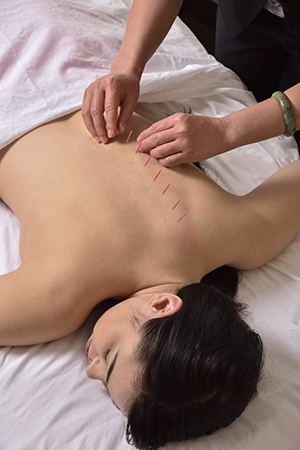 By Karl Oliger, DC, DACNB, Bloomington Neuro and Rehab
By Karl Oliger, DC, DACNB, Bloomington Neuro and Rehab
What is chronic pain?
Usually, with an injury such as a cut, the body senses the pain at the area of injury and sends a signal up to the brain that says something is wrong. The immediate reaction is for the part being injured to pull away from what is causing the injury. Naturally, our body wants to protect us from harm. At the same time, there are other signals from our brain to start the healing process. Our brain will signal for chemicals to be released, slowing or stopping any bleeding, and our natural defenses will go to the area to clean up any damage and begin the healing process.
However, there are times when we have an injury and the body doesn’t heal as quickly as it had before. Or, perhaps the immediate injury is stopped but scar tissue or other inflammatory responses (such as arthritis) remain. In these cases, the brain not only remembers the injury, but also is reprogrammed to think that this is the new normal. This pain that lasts for three months or longer can be termed chronic pain.
Some common conditions that may cause chronic pain are the following:
- Past surgeries or injuries
- Neck or back problems
- Headaches or migraines
- Nerve damage (neuropathy)
- Fibromyalgia
Help from a tiny needle
Currently, there is an “epidemic” of pain sufferers looking for help through conventional means. A portion of these people are not finding relief and turning to pain medications. Unfortunately, these medications may or may not be helping the chronic pain sufferer to reduce their level of pain. In addition, these medications pose a risk of creating a dependency. The intention of the provider is to help the patient. At times, these medications can become an unwanted and unsustainable habit.
One alternative to aid in the healing of chronic pain is found in the placement of a tiny needle: acupuncture. Acupuncture is a 2,500-year-old technique in which needles are inserted at specific points along lines throughout the body. Over the years, this form of medicine has been practiced with great success in several parts of the world for a myriad of conditions.
There are still debates on how exactly acupuncture works. In Eastern Medicine, it is thought that qi (pronounced chi) is flowing throughout the body. If the qi is no longer flowing in the proper manner, this can create sickness. Acupuncture is a way in which the qi can be balanced within the body. One idea within Western Medicine is that the acupuncture needle is inserted into specific areas, creating a signal within that area that travels to the brain. The brain then sends a message through the nervous system to create a healing response with neurotransmitters and other biological processes. It is thought that this process affects several opioid receptors and helps to reduce pain and inflammation.
Can acupuncture help with chronic pain?
Research over the past few decades has shown acupuncture to be effective in helping treat many conditions. Currently, acupuncture is being used in the battlefield to help with physical and emotional trauma. It is also being used to help those with addictions that may have stemmed from the overuse or misuse of prescription medications or abuse of other substances, such as alcohol. Also, there have been many studies showing the use of acupuncture in helping to relieve headaches, menstrual cramps, low back pain, knee and elbow pain, osteoarthritis, neck pain, and post-operative pain. As with all treatments, acupuncture is not 100 percent effective in all conditions.
However, the potential for lasting relief from chronic pain makes this therapy a positive alternative for those seeking an end to the quest of living a pain-free life.
For more information on chronic pain or acupuncture, please contact Bloomington Neuro and Rehab at 309-270-6070 or online at www.bloomingtonneurorehab.com. Their office is located at 3004 GE Rd. Ste. 1A. Dr. Oliger has completed extensive post-doctoral training and is a board-certified chiropractic neurologist and practitioner of functional medicine.

